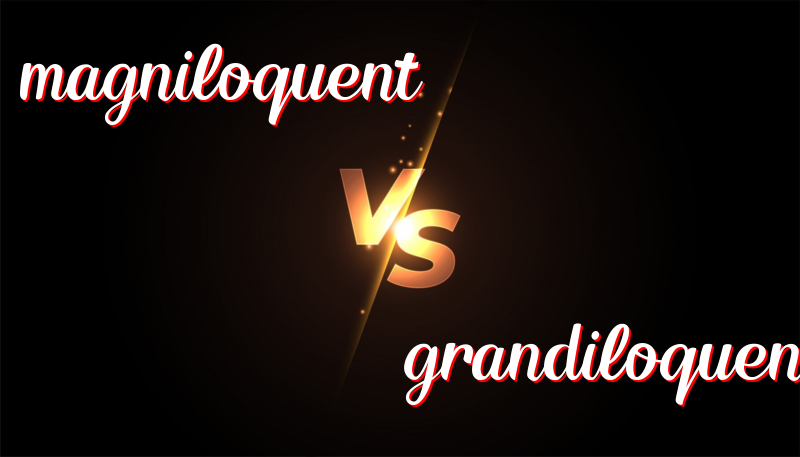Magniloquent vs. Grandiloquent: Understanding the Difference
Difference between Magniloquent and Grandiloquent
Magniloquent and grandiloquent are two words that describe someone who speaks in a grand or pompous manner. Both words have a similar meaning, but they have subtle differences in their usage.
History:
The word magniloquent comes from the Latin words “magnus,” meaning great, and “loqui,” meaning to speak. It originated in the mid-17th century. On the other hand, grandiloquent also has Latin roots, with “grandis,” meaning grand, and “loqui,” also meaning to speak.
How to use them:
When someone is described as magniloquent, it means they use lofty or grandiose language to impress others. Grandiloquent is similar but has a slightly negative connotation of using such language to seem more impressive or important than one really is.
Trick to Remember the Difference:
Remember that both words have “loquent” in them, which means “speaking.” To differentiate, think of magniloquent as more about speaking grandly in a positive way, while grandiloquent is about speaking grandly with negative intentions.
Usage Examples:
Magniloquent:
1. The politician’s magniloquent speech inspired the entire nation.
2. The author’s writing style was criticized for being overly magniloquent.
3. His magniloquent promises raised hopes but failed to deliver results.
4. The king’s magniloquent decree echoed across the land.
5. She captivated the audience with her magniloquent storytelling.
Grandiloquent:
1. The businessman’s grandiloquent claims turned out to be empty.
2. His grandiloquent gestures were seen as insincere.
3. The professor’s grandiloquent lectures confused rather than clarified the subject.
4. Her grandiloquent attitude made her unpopular among her peers.
5. The self-proclaimed expert’s grandiloquent explanations lacked substance.
Summary:
Magniloquent is about speaking in a grand or impressive way, usually with positive intentions. Grandiloquent, on the other hand, has a negative connotation of using grandiose language to appear more important or impressive than one really is.

Leave a Reply
You must be logged in to post a comment.